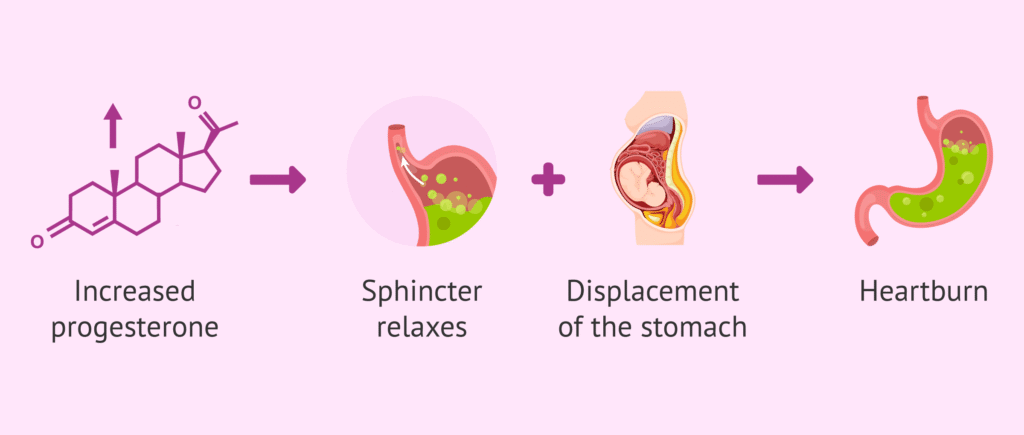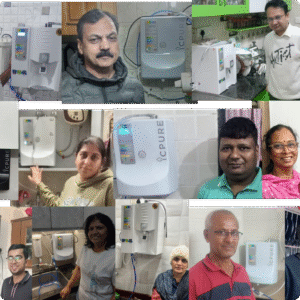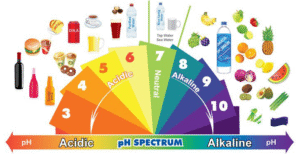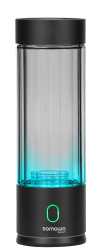Does Acidity Affect Fertility?

Acidity (or acidosis) occurs when the body’s pH becomes imbalanced, often from poor diet, stress, or health conditions. Does Acidity Affect Fertility? Yes—high acidity may interfere with hormone production, reduce ovulation efficiency, and create an unfavorable environment for sperm or egg quality. Over time, chronic acidosis can contribute to inflammation, fatigue, and nutrient deficiencies, all of which affect reproductive health. Maintaining a balanced diet rich in alkaline foods, staying hydrated, managing stress, and incorporating alkaline water can help restore pH balance. Couples trying to conceive may see improved fertility outcomes by addressing these underlying factors and promoting overall wellness naturally, showing why Does Acidity Affect Fertility is an important consideration for reproductive planning.
Common Causes of Acidity:
- Poor diet (high in animal protein, processed food)
- Excessive or anaerobic exercise
- Fasting/dieting
- Inflammation & chronic stress
- Conditions like PCOS, diabetes, endometriosis
How does Acidity Affects Fertility:
- Cervical mucus: Becomes too acidic, making it hard for sperm to penetrate (30% of infertility cases linked).
- Sperm quality: Acidic diets reduce sperm vitality and penetration ability, showing how Does Acidity Affect Fertility impacts male reproductive health.
- Microbes: Acidic environments favor yeast, fungi, and bacteria—linked to infections and reproductive problems.
-
Hormones:
Thyroid: Acidity lowers T3/T4, raises TSH → mild hypothyroidism → blocked ovulation, irregular cycles.
- Adrenals: More acidity → higher cortisol → inflammation, lower progesterone, and reduced implantation.

How does Acidity Affects Hormones, Energy, and Fertility
Acidity doesn’t just influence reproductive hormones — its ripple effects extend deep into hormone balance, metabolism, energy production, and even the quality of eggs and sperm. Does Acidity Affect Fertility? One of the most direct impacts is on progesterone, the hormone responsible for preparing the uterine lining for implantation each menstrual cycle.
When the body experiences chronic acidity, cortisol levels tend to rise. High cortisol drains the precursors needed for progesterone production, causing progesterone levels to fall. Does Acidity Affect Fertility becomes evident as insufficient progesterone makes the endometrium — the nutrient-rich lining of the uterus — less receptive to implantation, significantly lowering the chances of a successful pregnancy.
However, by supporting adrenal function and lowering acidity, the body can redirect essential building blocks toward progesterone synthesis, thereby enhancing fertility potential. Understanding Does Acidity Affect Fertility helps couples take proactive steps with diet, hydration, and lifestyle choices to improve reproductive health naturally.
How to Reduce Acidity
- Switch from acidic RO water to alkaline ionized water (pH > 7).
- Eat more alkalizing fruits & vegetables; cut down acidic foods (meats, grains, sugar, alcohol, carbonated drinks).
- Ensure good hydration for fetal growth and digestion.
- Use magnesium, potassium, calcium (with practitioner guidance) to support pH balance.
- Add exercise, relaxation, herbs, and nutrition for hormone balance.
Measuring Acidity
Does acidity just indicate reproductive health? Not at all — it affects overall hormone balance, metabolism, energy production, and even egg and sperm quality. Does Acidity Affect Fertility becomes clear when looking at progesterone, the hormone responsible for preparing the uterine lining for implantation each cycle. When the body experiences chronic acidity, elevated cortisol levels drain the precursors needed for progesterone production, showing how acidity indirectly lowers progesterone.
Measuring body pH helps answer Does Acidity Affect Fertility and its impact on reproductive potential. By managing pH levels and supporting adrenal function, couples can improve implantation success and enhance fertility naturally.
- At-home pH kits can test saliva or urine to track body acidity.
- Compare results with an ideal pH range chart included in the kit.
📰 Latest Research & Blog Highlights
In this blog
About somawa
Somawa began with a family’s discovery of alkaline water during illness, leading to ICPURE in 2019 — India’s first indigenous ionizer. From a necessity to a movement trusted by 500,000+ homes, we realized people seek more than purified water. They want purposeful water and a brand to believe in. That vision is Somawa.
Contact us
Our client














